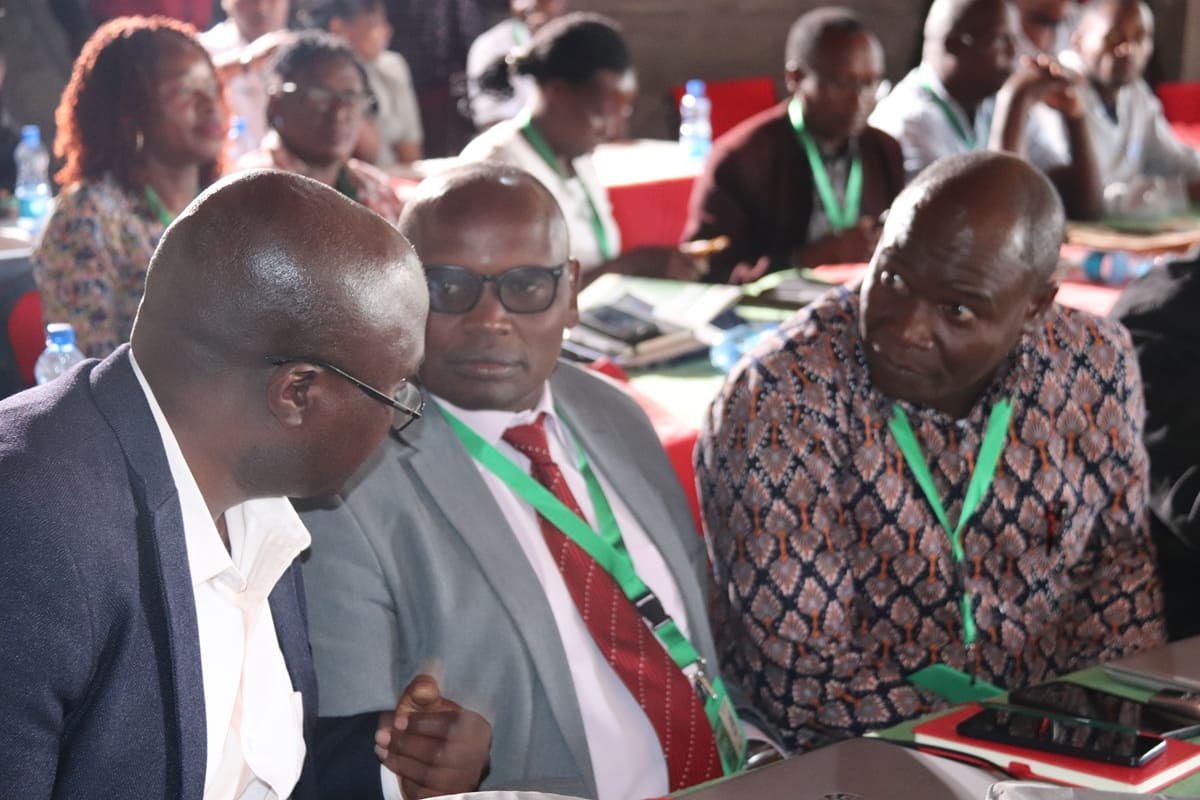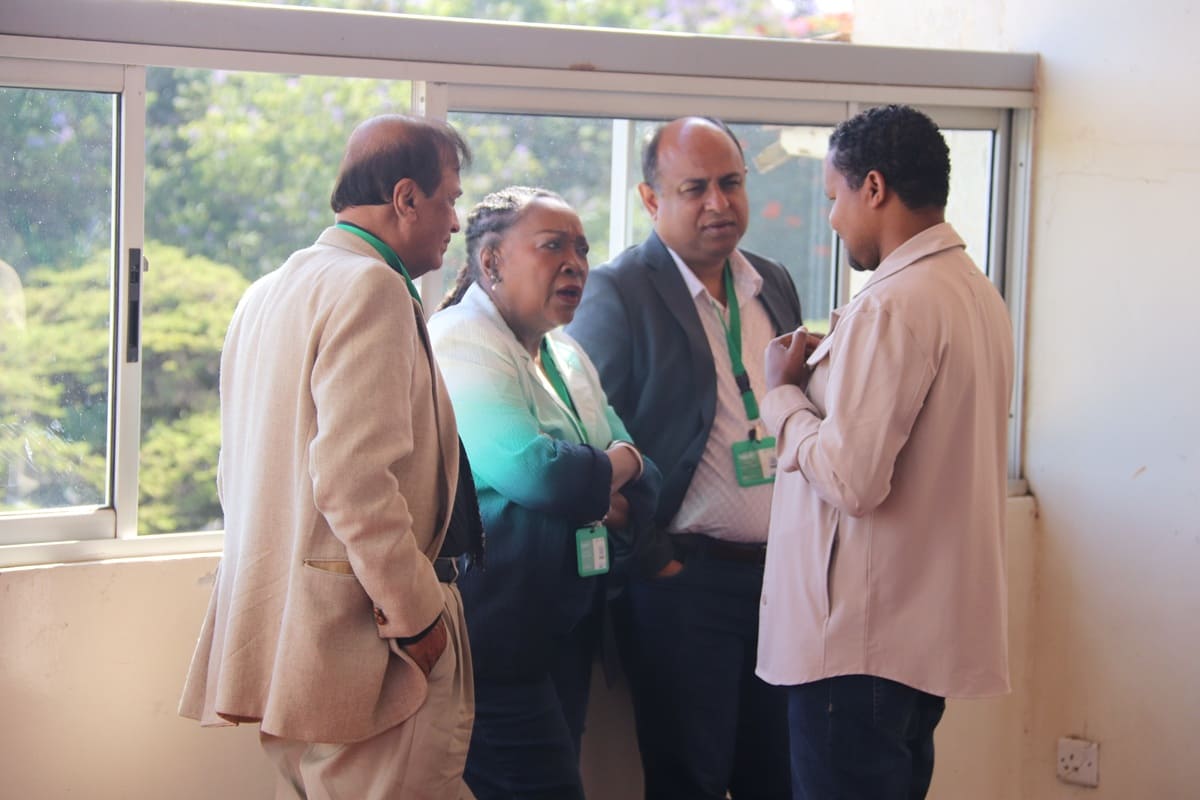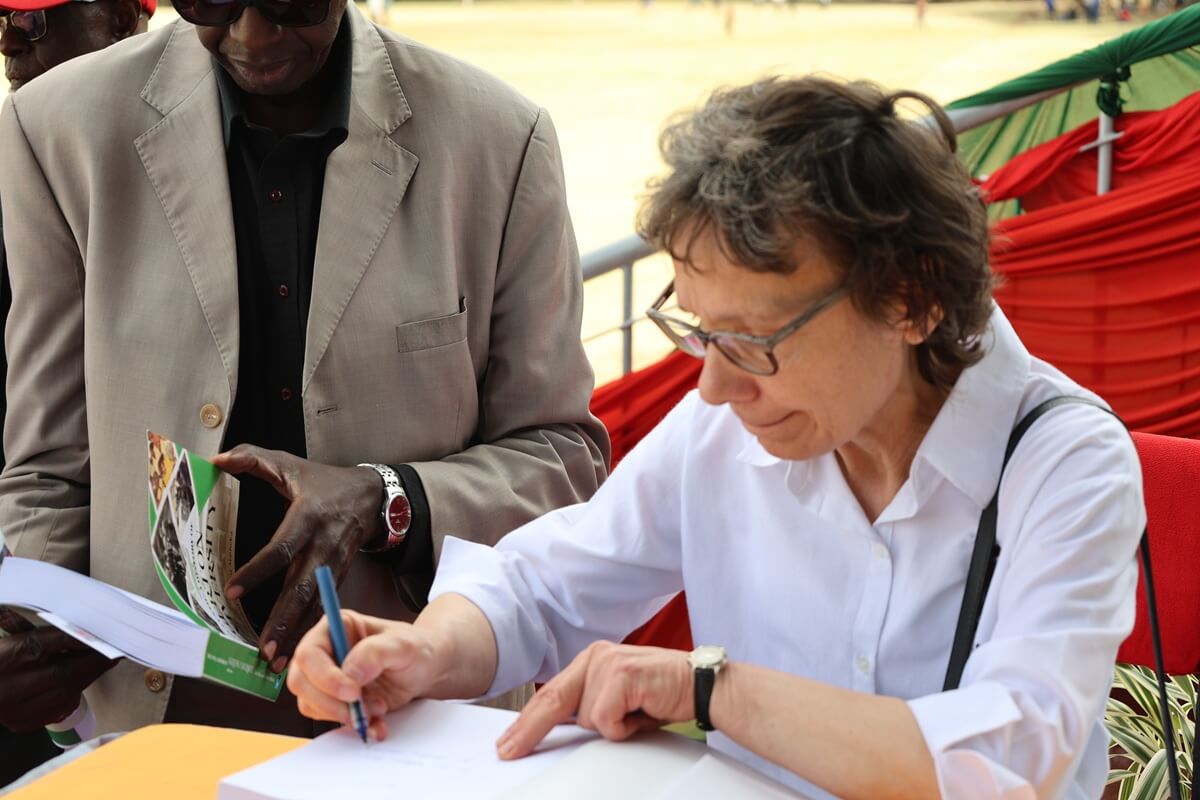Researchers, academia, students, farmers, industry leaders, and regulators are gathered at Egerton University for a three-day Biotech Symposium running from 12–14 November 2025.
The event seeks to unpack the opportunities and challenges surrounding food crops developed through Genetically Modified Organism (GMO) technology, bringing together key voices to explore how biotechnology can support Kenya’s food security agenda.

This was a knowledge sharing festival for a USDA foreign service agency sponsored project that was a collaboration between Egerton University and Florida A&M University, NBA Kenya and Zambia and National Centre of Biotechnology and Biological Science NCBB) Mozambique. Prof Sheick from Florida A&M is the project PI, while Dr Miriam Charimbu is Co-PI, and the other project team members are Dr Maurice Oyoo, Prof Paul Kimurto, Dr Steve Gathengu, Dr Mercy Wamalwa and Dr Harriet Paul.
The project aimed to establish Sustainable Networks of Next Generation Change Agents in Agricultural Biotechnology and Biosafety students from high schools, technical and Vocational training institutes (TVETs) and universities.

Speaking during the opening session, Deputy Vice Chancellor Academic, Research and Extension, Prof. Benard Aduda, welcomed all participants and urged them to generate ideas that would shape progressive government policies. He emphasized that biotechnology holds immense potential in addressing food insecurity, climate change, and emerging crop diseases. He encouraged a candid dialogue grounded in research evidence to guide national decision-making.
The session was chaired by Prof. Paul Kimurto, who welcomed presenters and participants, describing the symposium as “an eye-opener session” that would deepen understanding of the complexities surrounding GMO adoption in Kenya. He called on stakeholders to use the platform to share solutions that support farmers and promote innovation.
The keynote adress was delivered by Prof Miriam Kinyua from the university of Eldoret who shared her insights on “Catalyzing agricultural transformation in africa: harnessing biotechnology for climate resilience, food security, and inclusive innovation’. She notd that we needed to appreciate importance of food sovereignty in the face of agro-biotechnology advancement. This allows Intergration with emerging technologies to achieve the desired food security in Africa.

Dr. James Karanja from KARLO enlighted the participants on Bt Maize Adoption in Kenya: Scientific Progress and Strategic Lessons for Future Resilience. He noted the Key Achievements for 7 years (2018-2025) in the WEMA/TELA/BMSS Maize Initiative that release maize varieties including WE 4141, WE 3109, EVA ZEA Pendo, Kiongozi Shupavu and AgriPack 5117 among others.
Other presenters covered topics of Willingness to pay and market intelligence of Biotech products; food and feed safety and genome editing technologies.The regulatory bodies including NBA, KEPHIS and the legal representatives in the symposium noted that the lessons learnt from the panel discussions and presentations is that multi stakeholder collaborations is necessary for Kenya and Africa to realize the benefit of Agro-biotechnology including GMO and gene edited products.
One of the most engaging segments of the event saw researchers, students, farmers, industry leaders, and regulators deliberate on the challenges affecting the uptake of GMO food crops. Farmers expressed significant interest in adopting genetically modified varieties, noting their potential to boost yields, enhance resilience, and reduce production losses. However, industry leaders flagged serious hurdles, citing the high cost of establishing new production lines, branding systems, and specialized factories required for GMO-based food products. They argued that these infrastructural demands may slow down private sector investment.

This sparked debate on the role of the government in facilitating adoption. Participants challenged policymakers to consider establishing GMO-processing facilities as a public good, noting that such state-led support could reduce costs for industry, boost consumer confidence, and accelerate national uptake of biotechnology innovations.
At the closing event key presentation came from Prof. Samuel Mwonga, Deputy Centre Leader of CESAAM at Egerton University and Director Harriett Paul from Florida A&M University gave an overview of Egerton University, CESAAM and FAMU Projects, Collaboration and Engagements.
Another highlight was a detailed presentation by Prof. Richard Mulwa, on the Lessons from Sino-Kenya Joint Research Initiative. He elaborated on the long-standing partnership between Egerton University and Nanjing Agricultural University, supported by the Chinese government. The collaboration led to the establishment of the unique Confucius Institute and Agro-Based Science Park at Egerton University, focused on agricultural innovation, research, Demos and capacity building, which has resulted in establishment of research and demo facility. Through this partnership, students have benefited from Presidential and Ambassador Scholarships, enabling them to pursue advanced studies in China.
The Dean Faculty of Agriculture Dr Nduko gave overview of symposium achievements, which Dr Charimbu gave closing remarks.
The symposium was a hallmark fostering dialogue and collaboration aimed at strengthening Kenya’s capacity in biotechnology research and agricultural transformation.
Written: By Kurian Musa, Communications Officer email: musa,








